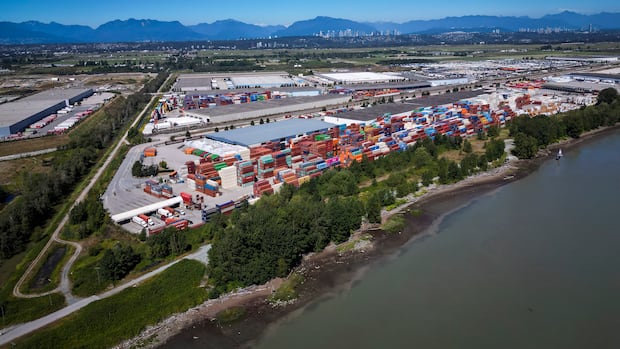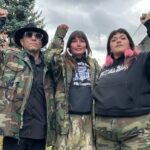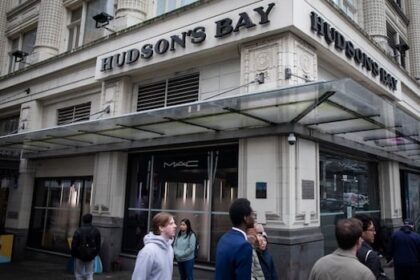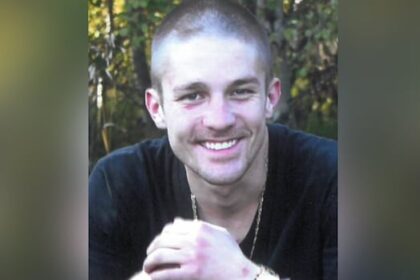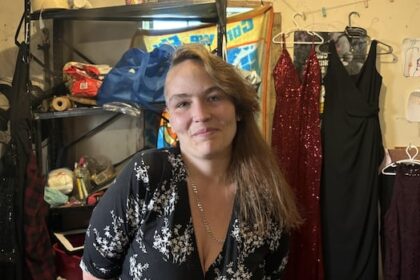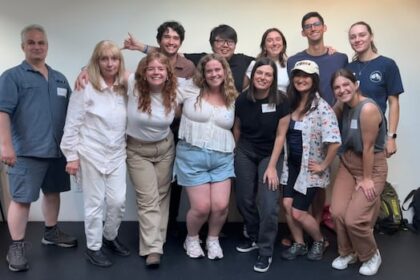British ColumbiaThe City of Richmond has invited registered owners of certain properties on Lulu Island to a meeting next week to help them better understand what’s at stake in regards to a B.C. Supreme Court decision from earlier this year that granted Aboriginal title to Quw’utsun (Cowichan) Nation.B.C. Supreme Court ruled Cowichan Tribes have the right to 7½ square kilometres of land in Richmond Land used for industrial purposes between No. 5 Road and No. 8 Road along the north side of the Fraser River in Richmond, B.C., is pictured on Aug. 12, 2025. The mayor of Richmond hopes an upcoming meeting will give property owners affected by the Cowichan Tribes case more information. (Ben Nelms/CBC)The City of Richmond has invited registered owners of certain properties on Lulu Island to a meeting next week to help them better understand what’s at stake in regards to a B.C. Supreme Court decision from earlier this year that granted Aboriginal title to Quw’utsun (Cowichan) Nation.The meeting scheduled for Oct. 28 in Richmond will take place almost three months after a B.C. Supreme Court judge ruled that Cowichan Tribes have the right to 7½ square kilometres of land in Richmond, ruling that land titles granted by government were invalid. While the First Nation had not sought to have the titles of privately held properties declared invalid, the court said the Crown’s granting of private property ownership rights unjustifiably infringes on Cowichan Aboriginal title and needs to be resolved through negotiation, litigation or purchase. Otherwise the properties would remain under Cowichan title lands.About 125 hand-delivered notices, and attached briefing papers, invited residents to a meeting on Oct. 28, where the City will share more information about the ongoing litigation.“Fundamentally, it is to make sure that the landowners and the occupants of the land in the area are fully conversant with the rulings of the court, how we got to this point, and where we’re going from here,” Richmond Mayor Malcolm Brodie told CBC News on Sunday. A map from the City of Richmond notice that shows what is part of the claim area. (City of Richmond)Brodie said he worries about the imprecision of the title and how it will affect certain properties.”I think it can totally undermine the land title program that we have in … British Columbia, completely undermine it and take it apart, and that can go for much of the entire country,” Brodie said of the court decision to The Canadian Press.”So I think that this decision has to be aggressively and assertively appealed, and it cannot be allowed to stand.” The City of Richmond, the province and the Musqueam First Nation have announced appeals of the decision. Brodie said the meeting will give affected property owners a chance to learn more about the case and ask questions. WATCH | Appeals pile up over Cowichan Tribes v. Canada:City of Richmond appeals B.C. Supreme Court decision on Cowichan Tribes titleThe City of Richmond is appealing a recent decision by the B.C. Supreme Court, which granted the Cowichan Tribes Aboriginal title to more than 700 acres of land on Lulu Island. Brodie said the title contradicts fee simple ownership, which grants property owners exclusive rights, and is what most home or land owners have.He said there is “very close co-ordination” between the defendants, and a case management meeting will take place sometime in the next week.“The ruling of the trial judge has to be overturned because we can’t have the Aboriginal title standing side by side with fee simple title,” said Brodie.Conservative Leader John Rustad also weighed in on X to say that he disagrees with the decision made by the B.C. Supreme Court.We live in unprecedented times.In Richmond, homeowners are being told that their properties may be at risk following a decision granting control of land to an Indigenous band.Property rights form one of the fundamental pillars of Western society. This decision cannot stand. pic.twitter.com/02yNplen3D—JohnRustad4BCLots of work to do, says Treaty commissionerGeorge Abbott, commissioner at the B.C. Treaty Commission, told CBC News on Sunday that the case underlines the need to negotiate treaties and agreements that address the history of dislocation and dispossession of First Nations across the province.Abbott said he understands why having a public discussion will be able to clarify the issues, but hopes it does not “ramp up additional over-the-top concerns” about the case.The former B.C. Liberal cabinet minister and political historian said he saw a copy of the notice that had been delivered by the City of Richmond.“There is nothing in the language of that notice that would set people aside calmly to deal with it,” he said. “I mean, there’s every reason to be concerned, I suppose, and the City of Richmond has to deal with this one way or another.”He hopes the appeals will clarify the exact relationship between fee simple titles and Aboriginal titles.“There’s a lot of work to do,” said Abbott. “There are injustices to resolve, and I think everyone prefers that those injustices be resolved by negotiation.”On Monday, CBC News contacted Cowichan Tribes for comment on the Richmond information session but did not immediately receive a response.ABOUT THE AUTHORBridget Stringer-Holden is a 2024 Joan Donaldson CBC News Scholar, currently working as an associate producer. She graduated from UBC’s Master of Journalism program and is passionate about science and climate reporting. Her work has been featured in The Globe and Mail, Vancouver Magazine, B.C. Business, The Vancouver Sun, The Georgia Straight and a variety of student papers, podcasts and radio stations. You can reach her at bridget.stringer-holden@cbc.ca.With files from the Canadian Press
Wednesday, 4 Feb 2026
Canada – The Illusion
Search
Have an existing account?
Sign In
© 2022 Foxiz News Network. Ruby Design Company. All Rights Reserved.
You May also Like
- More News:
- history
- Standing Bear Network
- John Gonzalez
- ᐊᔭᐦᑊ ayahp — It happened
- Creation
- Beneath the Water
- Olympic gold medal
- Jim Thorpe
- type O blood
- the bringer of life
- Raven
- Wás’agi
- NoiseCat
- 'Sugarcane'
- The rivers still sing
- ᑲᓂᐸᐏᐟ ᒪᐢᑿ
- ᐅᑳᐤ okâw — We remember
- ᐊᓂᓈᐯᐃᐧᐣ aninâpêwin — Truth
- This is what it means to be human.
- Nokoma


